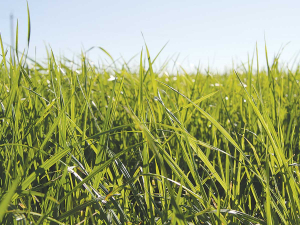Editorial: RMA reforms uproar
OPINION: The euphoria over the Government’s two new bills to replace the broken Resource Management Act is over.
 Levies are collected from the following Commons: Nui, Moata, Manawa, Tama, Ruanui, Huia and Pawera, as well as uncertified ryegrass, red and white clover.
Levies are collected from the following Commons: Nui, Moata, Manawa, Tama, Ruanui, Huia and Pawera, as well as uncertified ryegrass, red and white clover.
The Non-Proprietary and Uncertified Herbage Seeds Levy order will continue for another six years.
Growers overwhelmingly supported the levy.
"In fact, from 82% in favour at the last levy vote in 2014, support shown during the vote last November had risen to 91%," says Federated Farmers Herbage Seedgrowers Subsection chairperson, Hugh Wigley.
Agriculture Minister Damien O’Connor and the rest of Cabinet have approved continuation of the levy, and it will be gazetted this week.
"Grasses and clovers are vital to our sector but contracts for growing from proprietary seed are not always available and are more expensive. This levy safeguards supply of non-proprietary and uncertified seeds and provides different options to our farmers," says Wigley.
The Commodity Levies (Non-proprietary and Uncertified Seeds) Order, known as the Commons, was first mandated in 1997 when the responsibility for maintaining these cultivars was transferred to industry from Government.
Levies are collected from the following Commons: Nui, Moata, Manawa, Tama, Ruanui, Huia and Pawera, as well as uncertified ryegrass, red and white clover.
For the Commons to continue to be publicly available, live nucleus and pre-nucleus seed of each of the Commons must be maintained to make breeders and basic seed available to growers.
It costs an estimated $180,000 for Grasslanz Technology to ensure this base material is available to growers.
About 15 to 20% of this material comes from the commercial sale of breeders and basic seed, while the remainder comes from the levy.
The levy is collected on behalf of Federated Farmers by all seed testing stations on the first purity and germination test. It is set at a fixed per kg cost on the projected harvest of each of the Commons and the estimated kg price received by the grower. The maximum levy rate is 5%, although it is typically around 1.5 to 2%.
The Meat Industry Association of New Zealand (MIA) today announced that Chief Executive Officer Sirma Karapeeva has resigned from the role.
The winners of the 2026 Hawke’s Bay/Wairarapa Dairy Industry Awards were announced at the annual awards dinner held at Copthorne Solway Park in Masterton on Thursday evening.
Environment Southland is welcoming this week’s decision by the Environmental Protection Authority (EPA) to approve the release of Blaptea elguetai, a leaf‑feeding beetle that will help control the highly invasive Chilean flame creeper.
This March, the potato industry is proudly celebrating International Women’s Day on 8 March alongside the International Year of the Woman Farmer, recognising the vital role women play across every part of the sector — from paddocks and packhouses to research, leadership, and innovation.
Fruit trader Seeka posted a record profit and returns to shareholders in 2025.
Recent weather events in the Bay of Plenty, Gisborne/Tairawhiti, and Canterbury have been declared a medium-scale adverse event.

OPINION: A mate of yours truly reckons rural Manawatu families are the latest to suffer under what he calls the…
OPINION: If old Winston Peters thinks building trade relations with new nations, such as India, isn't a necessary investment in…